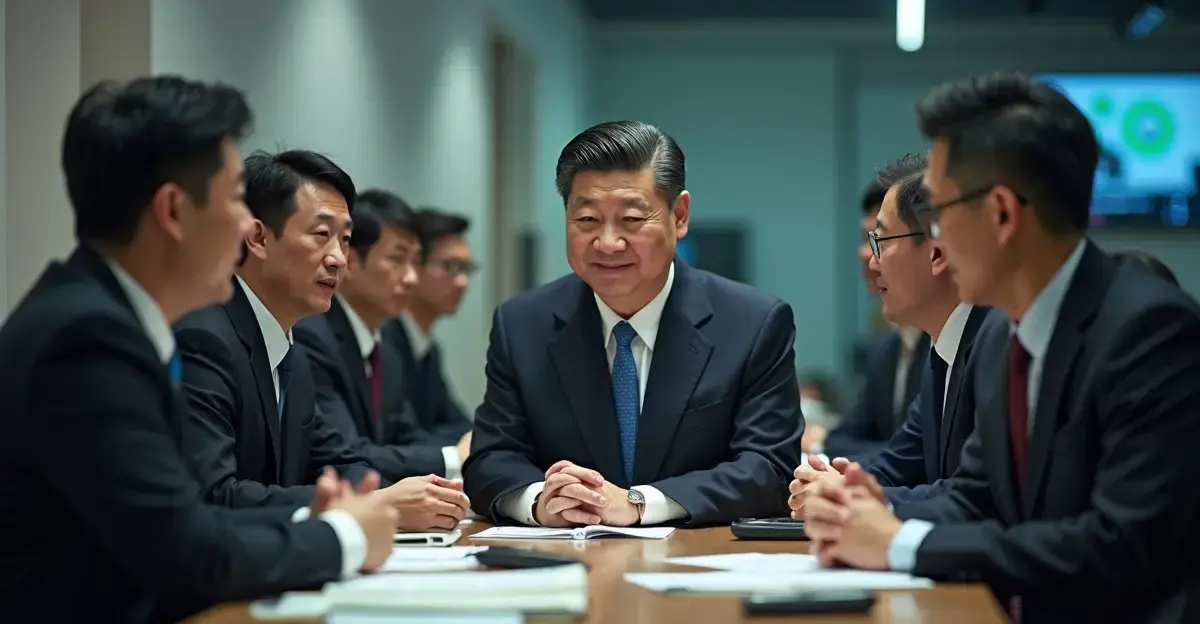Historic Partnership to Counter China's Dominance
In a landmark move to reduce dependence on China for critical minerals, the United States and Australia have signed a comprehensive $8.5 billion agreement focused on rare earth elements and other strategic minerals. The deal, announced by President Donald Trump and Australian Prime Minister Anthony Albanese at the White House, represents one of the most significant strategic partnerships in recent memory aimed at securing supply chains for technologies ranging from smartphones to military equipment.
Breaking China's Stranglehold
The agreement comes at a critical juncture in global geopolitics, following China's recent expansion of export restrictions on rare earth materials and batteries. 'Over a year we'll have so many critical minerals and rare earth metals that you won't know what to do with them,' President Trump declared during the press conference. 'Then they'll cost just $2.' The statement reflects the administration's confidence in rapidly scaling up production capacity outside China's control.
Australia possesses substantial reserves of critical minerals, with approximately 80% still untapped underground. Historically, these resources have been extracted and shipped to China for processing due to the high costs and environmental challenges of establishing refineries. 'China has dominated the critical raw materials market for years, which are crucial for the entire world,' noted Australia correspondent Meike Wijers. '90% of all rare earth metals worldwide are processed in China.'
Strategic Investments and Timeline
The comprehensive framework includes immediate investments totaling over $3 billion from the United States in critical mineral projects within the next six months, with Australia contributing an additional $1 billion. The Export-Import Bank will provide $2.2 billion in financing, potentially unlocking up to $5 billion in total investment. Among the specific projects is a Pentagon-backed gallium refinery in Western Australia with an annual capacity of 100 metric tons.
Prime Minister Albanese expressed enthusiasm about the partnership's broader implications: 'This deal has elevated the relationship between the US and Australia to a higher level.' The collaboration builds on existing security frameworks like AUKUS and represents a significant step in building resilient supply chains between allied nations.
Global Implications and Market Impact
Rare earth elements are essential components in modern technology, including electric vehicles, wind turbines, smartphones, and advanced defense systems. According to the Wikipedia entry on rare earth elements, these 17 metals are crucial for magnets, catalysts, and various electronic applications. Despite their name, rare earths are relatively abundant in Earth's crust but are challenging to extract and process economically.
The timing of this agreement is particularly significant given escalating trade tensions between the US and China. As reported by CNBC, President Trump has threatened 100% tariffs on Chinese goods if Beijing doesn't reverse its recent rare earth export controls. This deal provides the US with a strategic alternative to Chinese supplies while strengthening ties with a key Indo-Pacific ally.
Future Outlook
The partnership aims to establish Australia as a major global player in critical minerals processing, reducing worldwide dependence on China. With American investment supporting the development of processing infrastructure in Australia, the alliance hopes to create a sustainable supply chain that benefits not only the two nations but also European and other allied countries seeking alternatives to Chinese dominance.
As the global transition to clean energy accelerates, demand for rare earth elements continues to grow. This strategic partnership positions both nations to capitalize on this trend while addressing national security concerns about supply chain vulnerabilities. The success of this initiative could reshape global mineral markets and reduce geopolitical risks associated with concentrated production in a single country.

 Nederlands
Nederlands
 English
English
 Deutsch
Deutsch
 Français
Français
 Español
Español
 Português
Português










